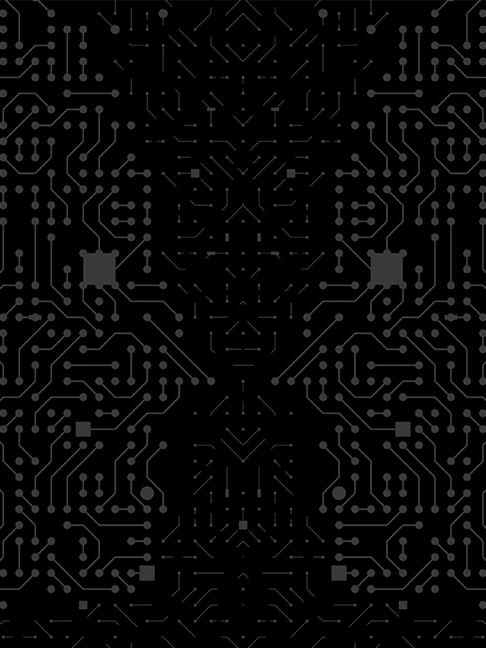The Silicon Valley successor to YouTube cat videos?
On deck... See prior post. Related riffs continue.
An eminent political thinker uses our history with states and corporations―“artificial agents” to which we have granted immense power―to predict how AI will remake society.
Countless books, news reports, and opinion pieces have announced the impending arrival of artificial intelligence, with most claiming that it will upend our world, revolutionizing not just work but society overall. Yet according to political philosopher and historian David Runciman, we’ve actually been living with a version of AI for 300 years?because states and corporations are robots, too. In The Handover, Runciman explains our current situation through the history of these “artificial agents” we created to rescue us from our all-too-human limitations―and demonstrates what this radical new view of our recent past means for our collective future.
From the United States and the United Kingdom to the East India Company, Standard Oil, Facebook, and Alibaba, states and corporations have gradually, and then much more rapidly, taken over the planet. They have helped to conquer poverty and eliminate disease, but also unleashed global wars and environmental degradation. As Runciman demonstrates, states and corporations are the ultimate decision-making machines, defined by their ability to make their own choices and, crucially, to sustain the consequences of what has been chosen. And if the rapid spread of the modern state and corporation has already transformed the conditions of human existence, new AI technology promises the same.
But what happens when AI interacts with other kinds of artificial agents, the inhuman kind represented by states and corporations? Runciman argues that the twenty-first century will be defined by increasingly intense battles between state and corporate power for the fruits of the AI revolution. In the end, it is not our own, human relationship with AI that will determine our future. Rather, humanity’s fate will be shaped by the interactions among states, corporations, and thinking machines.
With clarity and verve, The Handover presents a brilliantly original history of the last three centuries and a new understanding of the immense challenges we now face.—Amazon blurb
Ton of good writing going on these days on the topic.
STATES, CORPORATIONS, ROBOTS
Imagine a world of superhuman machines, built in our image and designed to make our lives go better. Imagine that these machines turn out to be vastly more powerful than we are. It’s not only that we can’t do what they do; we can’t really understand how they do it either. Still, we come to rely on them. They are there to serve our interests, offering us convenience, efficiency, flexibility, security and lots of spare time. Imagine that it all works. As a result of our inventions, we become longer lived, richer, better educated, healthier, and perhaps happier too (though that remains up for debate). We enjoy lives that would be unrecognisable to people born just a couple of generations earlier. The human condition is transformed.
Yet we know – surely, we know? – that there are enormous risks in becoming so dependent on these artificial versions of ourselves. They are superhuman but they are also fundamentally inhuman. They lack the essence of what makes us who we are. Call it a conscience. Call it a heart. Call it a soul. The potential power of these machines in the service of conscienceless, heartless, soulless human beings, of whom there are still plenty, is frightening. But more frightening still is the possibility that these machines will start taking decisions for themselves. They are meant to serve us, but they also have the capacity to destroy us. What if their power were to be turned against their creators? We might have ended up building the agents of our own obsolescence.
This is a very twenty-first-century story, and perhaps the quintessential twenty-first-century nightmare. On the cusp of the AI revolution, we are now constructing machines capable of doing things that leave us exhilarated, baffled or terrified.
Runciman, David (2023-11-13T22:58:59.000). The Handover: How We Gave Control of Our Lives to Corporations, States and AIs . Liveright. Kindle Edition.
DEC 5TH UPDATE
Some interesting errata from David's book relevant to current U.S. events.
The January 6th, 2021 Trump DC Insurrection attempt? Three years later we're still mired in the contentious process of establishing culpabilities.
BTW, Liz Cheney's new book comes out December 5th.
NY TIMES AI PIECE
Elon Musk celebrated his 44th birthday in July 2015 at a three-day party thrown by his wife at a California wine country resort dotted with cabins. It was family and friends only, with children racing around the upscale property in Napa Valley.This was years before Twitter became X and Tesla had a profitable year. Mr. Musk and his wife, Talulah Riley — an actress who played a beautiful but dangerous robot on HBO’s science fiction series “Westworld” — were a year from throwing in the towel on their second marriage. Larry Page, a party guest, was still the chief executive of Google. And artificial intelligence had pierced the public consciousness only a few years before, when it was used to identify cats on YouTube — with 16 percent accuracy.A.I. was the big topic of conversation when Mr. Musk and Mr. Page sat down near a firepit beside a swimming pool after dinner the first night. The two billionaires had been friends for more than a decade, and Mr. Musk sometimes joked that he occasionally crashed on Mr. Page’s sofa after a night playing video games.But the tone that clear night soon turned contentious as the two debated whether artificial intelligence would ultimately elevate humanity or destroy it...
A long-read. A good read.
As the discussion stretched into the chilly hours, it grew intense, and some of the more than 30 partyers gathered closer to listen. Mr. Page, hampered for more than a decade by an unusual ailment in his vocal cords, described his vision of a digital utopia in a whisper. Humans would eventually merge with artificially intelligent machines, he said. One day there would be many kinds of intelligence competing for resources, and the best would win.
If that happens, Mr. Musk said, we’re doomed. The machines will destroy humanity.
With a rasp of frustration, Mr. Page insisted his utopia should be pursued. Finally he called Mr. Musk a “specieist,” a person who favors humans over the digital life-forms of the future.
That insult, Mr. Musk said later, was “the last straw.”
Many in the crowd seemed gobsmacked, if amused, as they dispersed for the night, and considered it just another one of those esoteric debates that often break out at Silicon Valley parties.
But eight years later, the argument between the two men seems prescient. The question of whether artificial intelligence will elevate the world or destroy it — or at least inflict grave damage — has framed an ongoing debate among Silicon Valley founders, chatbot users, academics, legislators and regulators about whether the technology should be controlled or set free.
That debate has pitted some of the world’s richest men against one another: Mr. Musk, Mr. Page, Mark Zuckerberg of Meta, the tech investor Peter Thiel, Satya Nadella of Microsoft and Sam Altman of OpenAI. All have fought for a piece of the business — which one day could be worth trillions of dollars — and the power to shape it.
At the heart of this competition is a brain-stretching paradox. The people who say they are most worried about A.I. are among the most determined to create it and enjoy its riches. They have justified their ambition with their strong belief that they alone can keep A.I. from endangering Earth.
Mr. Musk and Mr. Page stopped speaking soon after the party that summer. A few weeks later, Mr. Musk dined with Mr. Altman, who was then running a tech incubator, and several researchers in a private room at the Rosewood hotel in Menlo Park, Calif., a favored deal-making spot close to the venture capital offices of Sand Hill Road.
That dinner led to the creation of a start-up called OpenAI later in the year. Backed by hundreds of millions of dollars from Mr. Musk and other funders, the lab promised to protect the world from Mr. Page’s vision.
Thanks to its ChatGPT chatbot, OpenAI has fundamentally changed the technology industry and has introduced the world to the risks and potential of artificial intelligence. OpenAI is valued at more than $80 billion, according to two people familiar with the company’s latest funding round, though Mr. Musk and Mr. Altman’s partnership didn’t make it. The two have since stopped speaking.
“There is disagreement, mistrust, egos,” Mr. Altman said. “The closer people are to being pointed in the same direction, the more contentious the disagreements are. You see this in sects and religious orders. There are bitter fights between the closest people.”…
Yeah, paywalled. I'm a long-time subscriber to "The Failing New York Times."
__________








No comments:
Post a Comment